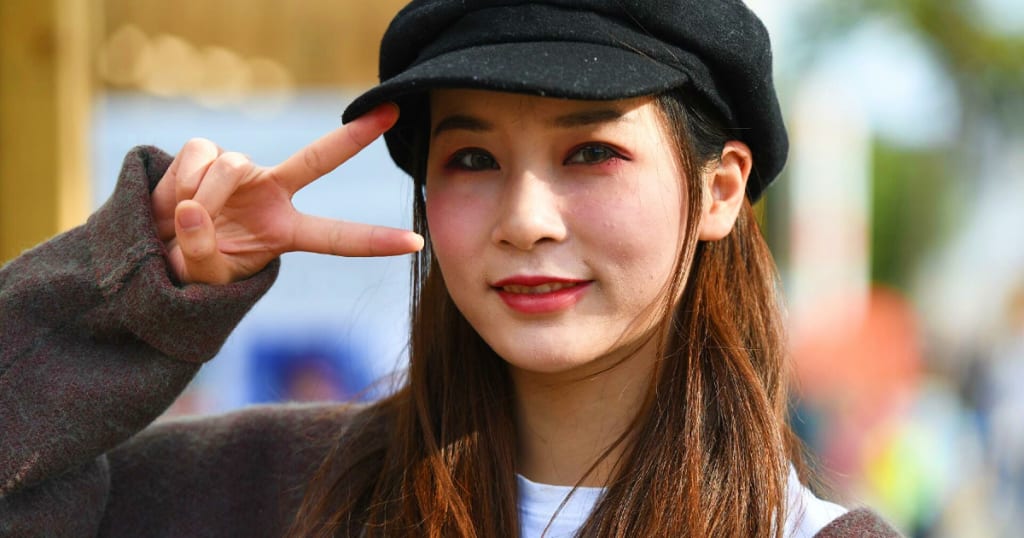Our souls are dead’: how I survived a Chinese ‘re-education’ camp for Uyghurs
....

After 10 years living in France, I returned to China to sign some papers and I was locked up. For the next two years, I was systematically dehumanised, humiliated and brainwashed
by Gulbahar Haitiwaji with Rozenn Morgat
Tue 12 Jan 2021 06.00 GMT
The man on the phone said he worked for the oil company, “In accounting, actually”. His voice was unfamiliar to me. At first, I couldn’t make sense of what he was calling about. It was November 2016, and I had been on unpaid leave from the company since I left China and moved to France 10 years earlier. There was static on the line; I had a hard time hearing him.
“You must come back to Karamay to sign documents concerning your forthcoming retirement, Madame Haitiwaji,” he said. Karamay was the city in the western Chinese province of Xinjiang where I’d worked for the oil company for more than 20 years.
“In that case, I’d like to grant power of attorney,” I said. “A friend of mine in Karamay takes care of my administrative affairs. Why should I come back for some paperwork? Why go all that way for such a trifle? Why now?”
The man had no answers for me. He simply said he would call me back in two days after looking into the possibility of letting my friend act on my behalf.
My husband, Kerim, had left Xinjiang in 2002 to look for work. He tried first in Kazakhstan, but came back disillusioned after a year. Then in Norway. Then France, where he had applied for asylum. Once he was settled there, our two girls and I would join him.
Kerim had always known he would leave Xinjiang. The idea had taken root even before we were hired by the oil company. We had met as students in Urumqi, the largest city in Xinjiang province, and, as new graduates, had begun looking for work. This was in 1988. In the job ads in the newspapers, there was often a little phrase in small print: No Uighurs. This never left him. While I tried to overlook the evidence of discrimination that followed us everywhere, with Kerim, it became an obsession.
Advertisement
After graduation, we were offered jobs as engineers at the oil company in Karamay. We were lucky. But then there was the red envelope episode. At lunar new year, when the boss handed out the annual bonuses, the red envelopes given to Uighur workers contained less than those given to our colleagues who belonged to China’s dominant ethnic group, the Han. Soon after, all the Uighurs were transferred out of the central office and moved to the outskirts of town. A small group objected, but I didn’t dare. A few months later, when a senior position came up, Kerim applied. He had the right qualifications and the seniority. There was no reason he shouldn’t get the position. But the post went to an employee who belonged to a Han worker who didn’t even have an engineering degree. One night in 2000, Kerim came home and announced that he had quit. “I’ve had enough,” he said.
What my husband was experiencing was all too familiar. Since 1955, when communist China annexed Xinjiang as an “autonomous region”, we Uighurs have been seen as a thorn in the side of the Middle Kingdom. Xinjiang is a strategic corridor and far too valuable for China’s ruling Communist party to risk losing control of it. The party has invested too much in the “new silk road”, the infrastructure project designed to link China to Europe via central Asia, of which our region is an important axis. Xinjiang is essential to President Xi Jinping’s great plan – that is, a peaceful Xinjiang, open for business, cleansed of its separatist tendencies and its ethnic tensions. In short, Xinjiang without Uighurs.
My daughters and I fled to France to join my husband in May 2006, just before Xinjiang entered an unprecedented period of repression. My daughters, 13 and 8 at the time, were given refugee status, as was their father. In seeking asylum, my husband had made a clean break with the past. Obtaining a French passport in effect stripped him of his Chinese nationality. For me, the prospect of turning in my passport held a terrible implication: I would never be able to return to Xinjiang. How could I ever say goodbye to my roots, to the loved ones I’d left behind – my parents, my brothers and sisters, their children? I imagined my mother, getting on in years, dying alone in her village in the northern mountains. Giving up my Chinese nationality meant giving up on her, too. I couldn’t bring myself to do it. So instead, I’d applied for a residence permit that was renewable every 10 years.
Advertisement
After the phone call, my head was buzzing with questions as I looked around the quiet living room of our apartment in Boulogne. Why did that man want me to go back to Karamay? Was it a ploy so the police could interrogate me? Nothing like this had happened to any of the other Uighurs I knew in France.
The man called back two days later. “Granting power of attorney will not be possible, Madame Haitiwaji. You must come to Karamay in person.” I gave in. After all, it was only a matter of a few documents.
“Fine. I’ll be there as soon as I can,” I said.
When I hung up, a shiver ran down my spine. I dreaded going back to Xinjiang. Kerim had been doing his best to reassure me for two days now, but I had a bad feeling about it. At this time of year, Karamay city was in the grip of a brutal winter. Gusts of icy wind howled down the avenues, between the shops, houses and apartment buildings. A few bundled-up figures braved the elements, hugging the walls, but on the whole, there was not a soul to be seen. But what I feared most of all were the ever-stricter measures regulating Xinjiang. Anyone who set foot outside their home could be arrested for no reason at all.
That wasn’t new, but the despotism had become more pronounced since the Urumqi riots in 2009, an explosion of violence between the city’s Uighur and Han populations, which left 197 people dead. The event marked a turning point in the recent history of the region. Later, the Chinese Communist party would blame the entire ethnic group for these horrible acts, justifying its repressive policies by claiming that Uighur households were a hotbed of radical Islam and separatism.
The summer of 2016 saw the entrance of a significant new player in the long struggle between our ethnic group and the Communist party. Chen Quanguo, who had made his reputation imposing draconian surveillance measures in Tibet, was named head of Xinjiang province. With his arrival, the repression of Uighurs escalated dramatically. Thousands were sent to “schools” built almost overnight on the edge of desert settlements. These were known as “transformation through education” camps. Detainees were sent there to be brainwashed – and worse.
I didn’t want to go back, but all the same, I decided Kerim was right: there was no reason for me to worry. The trip would only take a few weeks. “They’ll definitely pull you in for questioning, but don’t panic. That’s completely normal,” he reassured me.
About the Creator
Dennis Andrei
My name is Denis and I like to play interesting games about wars and adventures. I will write interesting things and I hope you like it.






Comments
There are no comments for this story
Be the first to respond and start the conversation.